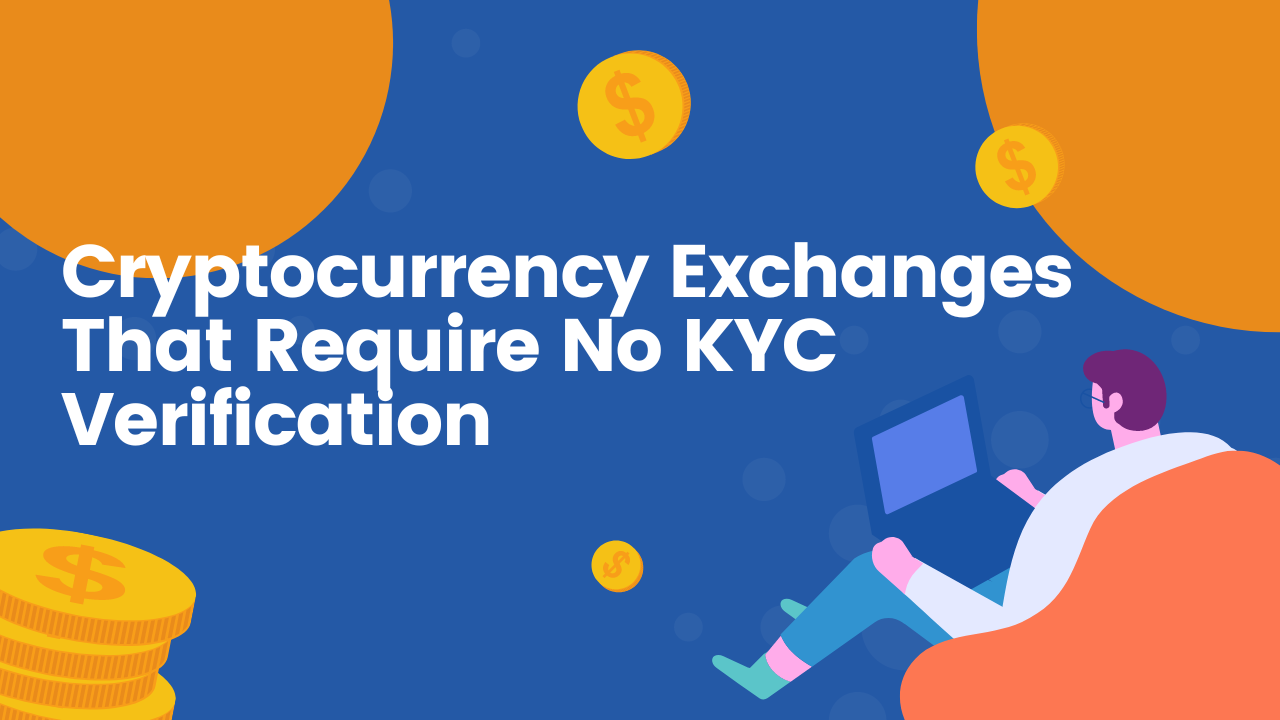As we explore the world of cryptocurrency, many of us are looking for ways to trade without the hassle of extensive verification processes. Cryptocurrency exchanges that require no KYC verification provide users with a simple and efficient way to buy, sell, and trade digital assets while maintaining anonymity. This can be particularly appealing to those who value privacy or want to avoid lengthy onboarding procedures.

The rise of no KYC exchanges has allowed more people to participate in the crypto market without facing barriers that traditional platforms often impose. These exchanges enable us to engage in trading activities more freely, whether we are seasoned investors or just starting. We can discover various platforms that cater to our needs, whether it’s for spot trading or more complex options like futures and margin trading.
By choosing a no-KYC exchange, we get to enjoy the benefits of faster transactions and less paperwork, which can enhance our trading experience. This article will guide us through the best options available in 2024, helping us make informed decisions about where to trade.
Understanding KYC in Cryptocurrency Exchanges

KYC, or Know Your Customer, is a process that is vital for many cryptocurrency exchanges. It involves verifying the identity of users to enhance security and prevent illegal activities. We will discuss the definition of KYC, the importance of its regulations, and the concerns around anonymity and privacy.
Definition of KYC
KYC stands for Know Your Customer. It is a compliance process used by financial institutions and exchanges to verify the identity of their users.
This process typically involves collecting personal information like:
- Name
- Address
- Date of birth
- Government-issued identification
By enforcing KYC, exchanges aim to prevent fraud and money laundering. While some exchanges require extensive documentation, others offer no KYC options for users seeking more privacy.
The Importance of KYC Regulations
KYC regulations play a crucial role in maintaining the integrity of financial systems. They help mitigate risks associated with identity theft, fraud, and terrorism financing.
Adopting KYC helps exchanges:
- Create a safer trading environment
- Promote transparency within the market
- Attract more users due to increased trust
When exchanges follow KYC procedures, they are less likely to be associated with illegal activities. This encourages regulatory bodies to support and engage with compliant exchanges.
Anonymity and Privacy Concerns
While KYC promotes security, it raises concerns about user privacy. Many users prefer to remain anonymous when trading cryptocurrencies.
They worry that providing personal information may lead to:
- Data breaches
- Unwanted tracking
- Misuse of personal data
No KYC exchanges allow users to trade without revealing their identity. This attracts those who prioritize privacy over compliance. Balancing security and anonymity remains a significant challenge for the crypto community.
Characteristics of Non-KYC Crypto Exchanges

Non-KYC crypto exchanges offer unique features that appeal to users seeking privacy and ease of access. We will explore their anonymity features, the jurisdictions where they operate, and the limitations that come with these platforms.
Anonymity Features
One of the main characteristics of non-KYC exchanges is their strong focus on user anonymity. These platforms do not require personal identification, allowing us to trade cryptocurrencies without disclosing sensitive information.
Users can create accounts with minimal details, often using just an email address or even none at all. This makes the trading experience quick and straightforward. Additionally, many non-KYC exchanges allow transactions through decentralized wallets, enhancing our privacy.
Privacy-focused features may also include the use of VPNs or Tor for added security. However, while anonymity is a key benefit, we should remain cautious, as transactions are still recorded on the blockchain.
Operational Jurisdictions
Non-KYC exchanges are often based in countries with more relaxed regulations regarding cryptocurrency. This allows them to operate without the stringent KYC requirements seen in other regions.
Commonly, we find these platforms operating in places such as Seychelles, Belize, and Estonia. These jurisdictions provide the framework for facilitating anonymous trading while still adhering to local laws.
Since regulations vary widely, we need to be aware of the legal implications of using non-KYC exchanges. We should understand the rules in our own countries to avoid potential legal issues when trading.
Limitations and Trade-offs
While non-KYC exchanges present enticing benefits, there are limitations we must consider. One of the most significant trade-offs is lower liquidity compared to KYC exchanges. This can affect our ability to execute trades quickly and at favorable prices.
Additionally, non-KYC platforms may offer fewer trading pairs and limited features, such as fewer options for fiat currency transactions. Security can also be a concern. Some platforms may not provide the same level of customer support or robust security measures, increasing our exposure to risks.
Lastly, the lack of regulatory oversight can lead to potential fraud or scams. We must practice due diligence and research these exchanges thoroughly before engaging with them.

















